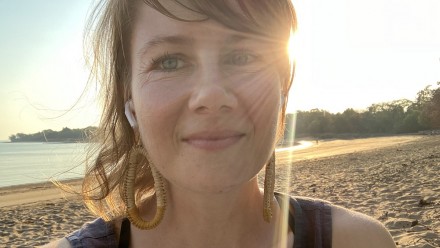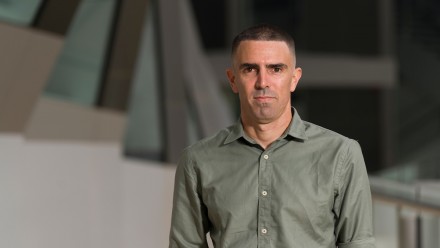Improving early detection and management of chronic disease for Aboriginal and Torres Strait Islander people
Dr Jason Agostino and team awarded $1.6 million by the Australian Government Department of Health to enhance chronic disease screening and management for Aboriginal and Torres Strait Islander people.
Aboriginal and Torres Strait Islander peoples have a high burden of chronic diseases such as cardiovascular disease (CVD), diabetes and renal disease which often have their onset at a young age.
Witnessing this health inequality first hand through his GP work at Yarrabah, an Aboriginal community south of Cairns, Dr Jason Agostino of the Research School of Population Health and ANU Medical School is determined to make a difference.
“It’s all too common that Aboriginal or Torres Strait Islander people in their 30s have a heart attack, or a long term medical condition that impacts their life,” says Agostino.
“Anything we can do to prevent a heart attack or stroke early is a good thing. It helps people live to old age, and allows them to be there for their family and community.”
Agostino will lead a team of researchers from the ANU and The University of Sydney to tailor predicting the likelihood of stroke or heart attack specifically to Aboriginal and Torres Strait Islander people. The team will also work to better understand current primary health care services that support chronic disease screening and follow-up. By identifying what works and what doesn’t, they can then advocate to government to support successful models of care.
It’s not just theory, modelling and observations, however. The project will support change in patient and clinician behavior through the development of shared decision making tools. These resources will encourage them to talk together about better treatment options.
“People with chronic disease need to make difficult decisions, for example stopping smoking. You can’t just tell someone what to do, they need to be engaged and active decision makers in their own care,” says Agostino.
“The resources developed in this program will be developed to better engage with Aboriginal and Torres Strait Islander people, and we hope will be more successful than existing tools.”
This project stands out as it promotes a holistic approach to healthcare – early detection of chronic diseases, embedding practices in primary health care, and engaging with patients in shared decision making.
This all-encompassing approach extends to the multiple organisations involved, including the Australian Government Department of Health, policy makers, and Aboriginal and Torres Strait Islander research leaders.
“Improving the health of people with chronic disease is a really difficult thing to do. But we have all the right people involved to make it happen,” says Agostino.














